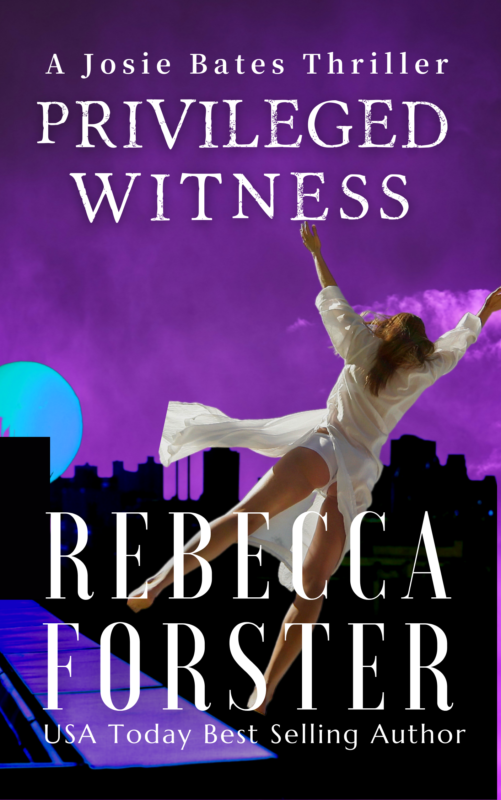May President’s Message
May 1, 2008 by A Slice of Orange in category Archives tagged as President's MessageAt the April board meeting, the appointments of our Orange Blossom co-editors were confirmed. I am looking forward to seeing their fresh new ideas on these pages in the coming months. Within the next day or two, OCC members should expect the May edition in their email box via the OCC Announcements loop.
More good news – we have a new blog editor! Laura Drake is an online class moderator–in-training, and has now joined the staff as contributor and editor of OCC’s blog, “A Slice of Orange†at http://occsliceoforange.blogspot.com/. (Thank you, Laura!) Are you interested in writing a monthly column? Great PR op! Please contact Laura at http://us.mc561.mail.yahoo.com/mc/compose?to=laura.drake@cardifus.com. Laura also volunteered to create an informational flyer for guests and new members listing the services offered by our chapter. The flyers will be available through Membership Director Rowena Hacker at the May meeting.
Thanks to everyone who voted at the meeting and who sent in their proxy ballots, the restated bylaws passed unanimously at the April meeting. I know I speak for the entire chapter in expressing our gratitude to Past-Presidential Advisor Jann Audiss and Linda Prine (also one of our past presidents) for their hard work as Bylaws Chairs.
The Published Authors’ Workshop (PAW) can now sign up for the new PAW-chat loop at www.occrwa.org/members/-paninfo.html.
And one final thanks to Ways & Means Director Deb Mullins, who has organized the WRITERPALOOZA raffle for the May and June meetings with some terrific prizes, including author critiques and books. Look for details at http://occrwa.org/writerpalooza.html
– Sue Phillips
Read what you like
April 28, 2008 by A Slice of Orange in category ArchivesI read on Publisher’s Lunch the other day that Harris International did a poll of American adults and asked, “What is your favorite book of all time?†The answers:
1. The Bible
2. Gone with the Wind, by Margaret Mitchell
3. Lord of the Rings (series), by J.R.R. Tolkien
4. Harry Potter (series), by J.K. Rowling
5. The Stand, by Stephen King
6. The DaVinci Code, by Dan Brown
7. To Kill a Mockingbird, by Harper Lee
8. Angels and Demons, by Dan Brown
9. Atlas Shrugged, by Ayn Rand
10. Catcher in the Rye, by J.D. Salinger
Wow, I was shocked – first, because 4 of my top favorites were there (2,5,7 & 9.) Second, because there wasn’t one “literary work†listed (not counting the Bible – I’m not going to attempt to categorize that.)
In my humble opinion, this tells us several things about the American reader: First, obviously reading is not dead. The fact that none of these were comics tells us people are still reading, and not at a low level. They didn’t publish the demographics, so I don’t know whom they asked, but Harris is an esteemed poll, so I’m going to assume it was a true cross-section of the population.
Next, in spite of critics, ivory-tower professors and snobs, “literary works†aren’t as well loved as a good, a old-fashioned yarn. After all, I don’t see Faulkner or Hemmingway on that list – not even Jane Austen! What I see all the above have in common is that they’re great stories, told in a colorful and straightforward manner. I’ve always had the secret belief that “literary fiction†(apologies to my friend Ann who swears the term doesn’t exist) is what people buy as a “coffee table book†to leave around the house to impress their friends with what they’re reading (but don’t.)
Now don’t misunderstand me, I really enjoy Steinbeck, Twain, Dickens and others. I’m just saying that they don’t make my top ten list, and apparently not others’ either. What’s wrong with popular fiction? Given the stats on how many books the average American reads per year, shouldn’t we be happy they are reading anything?
Read what you like – proudly
A Fantasy Life
April 27, 2008 by A Slice of Orange in category A Fantasy Life by Janet Cornelow tagged as Janet Cornelow, Janet QuinnWhen writing fantasy, sometimes something out of mythology can trigger and idea that is just too good to pass up. A chimera seems to be one of those things.
What Inspires You
April 25, 2008 by A Slice of Orange in category Archives tagged as What Inspires YouONE
by Lori Pyne
He entered the last grades with a sigh. Few, other than the excepted, achieved high marks. Each topic on the test had been discussed, reviewed and studied at least five different times, five different ways. Participation from each student had increased. He had been certain that this test would display the beginning of marked improvement.
The results refuted that supposition.
As he rose from his seat, he dropped his partially eaten lunch in the trash. He would discuss the outcome with his master teacher after the meeting. With the semester half way finished, he did not have much time to get through to these kids.
He locked the door as he left the classroom. Turning his thoughts to the upcoming meeting, he wondered how it would feel to sit on the other side of the table. Although he had attended numerous individual education plan meetings as a parent for his son, this would be his first time attending as a teacher.
A group gathered in the hall outside of the conference room. As he walked into the room, one of the women said an IEP is a legal document and not something to just ignore. A viewpoint he shared strongly, having seen the strides his son had maded with the help of the modifications.
He sat at the table and nodded to his master teacher seated next to him. As he turned to tell his master teacher about the disappointing test results, the group from the hall streamed into the room. The dark haired woman, who has commented on the legal status of an IEP, remained standing before the table.
“Is the student teacher here?” she demanded.
He raised his hand. He and his master teacher exchanged a glance. His master teacher raised and eyebrow and shook his head.
“Before we start, I have to tell you something.” He felt his stomach tighten. The image of her son flashed in his mind. “I don’t know what you’re doing.” The principal stood and began to speak. The woman held up her hand. “My son’s constantly quoting you and is actually doing homework for your class. He hasn’t taken an interest in school since preschool. Whatever you’re doing, keep doing it.”
He felt as if he had been struck by lightning.
“Thank you,” he said through the lump in his throat.
“No, thank you.” She sat in the chair beside the principal. “Let’s hope that some of his newly found excitement spills over to his other classes.”
One. At least he now knew he had reached one. He had until the end of the school year to reach the rest.
______________________________________________________________
Lori Pyne is a member of OCC, and a multi-tasking volunteer. She is currently serving as one of our Online Class Moderators, Guest Reception Coordinator and Coordinator for the Book Buyers’ Best Contest for published authors. She is married with one son, and works full time for an entertainment law firm.
e-maginings: Celebrating the Bard of Avon
April 24, 2008 by A Slice of Orange in category Archives tagged as e-maginings, William Shakespeare Today is the 392nd anniversary of the death of William Shakespeare on April 23, 1616. April 23 may also be his birthday, but no one knows for sure. We do know he was christened on April 26, 1564.
Today is the 392nd anniversary of the death of William Shakespeare on April 23, 1616. April 23 may also be his birthday, but no one knows for sure. We do know he was christened on April 26, 1564.
In any case, the bard seemed like a good topic for today’s blog. After all, he was one of the most influential writers of all time, though not much is known about his personal life. He was very prolific and is credited with having written 38 plays, 154 sonnets, and a few other poems.
About 150 years after his death, some people began to doubt that his works were really written by a more learned man. Francis Bacon, Christopher Marlowe, and Edward de Vere, the Earl of Oxford, were all suggested, but as they were all dead… Scholars dismiss these doubts, though speculation continues. I guess we’ll never know.
Shakespeare has probably given us more famous quotes and common sayings than any other writer. Here are a few that should seem familiar.
“This above all: to thine own self be true”. – Hamlet (Act I, Scene III).
“All the world ‘s a stage, and all the men and women merely players. They have their exits and their entrances; And one man in his time plays many parts” – As You Like It (Act II, Scene VII).
“Can one desire too much of a good thing?”. – As You Like It (Act IV, Scene I)
“The devil can cite Scripture for his purpose”. – The Merchant of Venice (Act I, Scene III).
“He hath eaten me out of house and home”. – King Henry IV, Part II (Act II, Scene I).
“The better part of valour is discretion”. – King Henry IV, Part I (Act V, Scene IV).
“The first thing we do, let’s kill all the lawyers”. – King Henry the Sixth, Part II (Act IV, Scene II).
“But, for my own part, it was Greek to me”. – Julius Caesar (Act I, Scene II).
“Cowards die many times before their deaths; The valiant never taste of death but once.” – Julius Caesar (Act II, Scene II).
“I bear a charmed life”. – Macbeth (Act V, Scene VIII).
“All the perfumes of Arabia will not sweeten this little hand.” – Macbeth (Act V, Scene I).
“I will wear my heart upon my sleeve for daws to peck at”. – Othello (Act I, Scene I).
“I have not slept one wink.”. – Cymbeline (Act III, Scene III).
“My salad days, when I was green in judgment.” – Antony and Cleopatra (Act I, Scene V).
“We are such stuff as dreams are made on, rounded with a little sleep”. – The Tempest
“The course of true love never did run smooth”. – A Midsummer Night’s Dream (Act I, Scene I).
“Love looks not with the eyes, but with the mind, and therefore is winged Cupid painted blind”. – A Midsummer Night’s Dream (Act I, Scene I).
For more on Shakespeare’s life and words, here are some links:
http://absoluteshakespeare.com/trivia/quotes/quotes.htm
http://en.wikipedia.org/wiki/William_Shakespeare
http://www.shakespeare-online.com/biography/
http://absoluteshakespeare.com/trivia/biography/shakespeare_biography.htm
Linda
Affiliate Links
A Slice of Orange is an affiliate with some of the booksellers listed on this website, including Barnes & Nobel, Books A Million, iBooks, Kobo, and Smashwords. This means A Slice of Orange may earn a small advertising fee from sales made through the links used on this website. There are reminders of these affiliate links on the pages for individual books.
Search A Slice of Orange
Find a Column
Archives
Featured Books
PRIVILEGED WITNESS
The beautiful wife of a senate candidate is dead; his disturbed sister is accused.
More info →Newsletter
Contributing Authors
Search A Slice of Orange
Find a Column
Archives
Authors in the Bookstore
- A. E. Decker
- A. J. Scudiere
- A.J. Sidransky
- Abby Collette
- Alanna Lucus
- Albert Marrin
- Alice Duncan
- Alina K. Field
- Alison Green Myers
- Andi Lawrencovna
- Andrew C Raiford
- Angela Pryce
- Aviva Vaughn
- Barbara Ankrum
- Bethlehem Writers Group, LLC
- Carol L. Wright
- Celeste Barclay
- Christina Alexandra
- Christopher D. Ochs
- Claire Davon
- Claire Naden
- Courtnee Turner Hoyle
- Courtney Annicchiarico
- D. Lieber
- Daniel V. Meier Jr.
- Debra Dixon
- Debra H. Goldstein
- Debra Holland
- Dee Ann Palmer
- Denise M. Colby
- Diane Benefiel
- Diane Sismour
- Dianna Sinovic
- DT Krippene
- E.B. Dawson
- Emilie Dallaire
- Emily Brightwell
- Emily PW Murphy
- Fae Rowen
- Faith L. Justice
- Frances Amati
- Geralyn Corcillo
- Glynnis Campbell
- Greg Jolley
- H. O. Charles
- Jaclyn Roché
- Jacqueline Diamond
- Janet Lynn and Will Zeilinger
- Jeff Baird
- Jenna Barwin
- Jenne Kern
- Jennifer D. Bokal
- Jennifer Lyon
- Jerome W. McFadden
- Jill Piscitello
- Jina Bacarr
- Jo A. Hiestand
- Jodi Bogert
- Jolina Petersheim
- Jonathan Maberry
- Joy Allyson
- Judy Duarte
- Justin Murphy
- Justine Davis
- Kat Martin
- Kidd Wadsworth
- Kitty Bucholtz
- Kristy Tate
- Larry Deibert
- Larry Hamilton
- Laura Drake
- Laurie Stevens
- Leslie Knowles
- Li-Ying Lundquist
- Linda Carroll-Bradd
- Linda Lappin
- Linda McLaughlin
- Linda O. Johnston
- Lisa Preston
- Lolo Paige
- Loran Holt
- Lyssa Kay Adams
- Madeline Ash
- Margarita Engle
- Marguerite Quantaine
- Marianne H. Donley
- Mary Castillo
- Maureen Klovers
- Megan Haskell
- Melanie Waterbury
- Melissa Chambers
- Melodie Winawer
- Meriam Wilhelm
- Mikel J. Wilson
- Mindy Neff
- Monica McCabe
- Nancy Brashear
- Neetu Malik
- Nikki Prince
- Once Upon Anthologies
- Paula Gail Benson
- Penny Reid
- Peter Barbour
- Priscilla Oliveras
- R. H. Kohno
- Rachel Hailey
- Ralph Hieb
- Ramcy Diek
- Ransom Stephens
- Rebecca Forster
- Renae Wrich
- Roxy Matthews
- Ryder Hunte Clancy
- Sally Paradysz
- Simone de Muñoz
- Sophie Barnes
- Susan Squires
- T. D. Fox
- Tara C. Allred
- Tara Lain
- Tari Lynn Jewett
- Terri Osburn
- Tracy Reed
- Vera Jane Cook
- Vicki Crum
- Writing Something Romantic
Affiliate Links
A Slice of Orange is an affiliate with some of the booksellers listed on this website, including Barnes & Nobel, Books A Million, iBooks, Kobo, and Smashwords. This means A Slice of Orange may earn a small advertising fee from sales made through the links used on this website. There are reminders of these affiliate links on the pages for individual books.












































